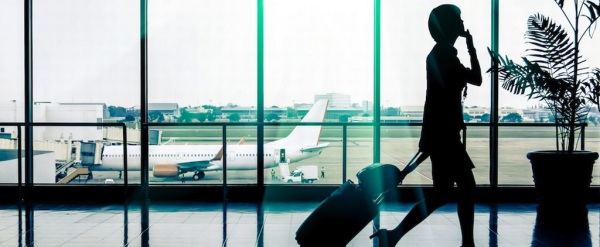If you have a work trip abroad, it makes sense to plan ahead and ensure you are ready to make the most of the trip.
Create an Itinerary
It can be difficult to motivate yourself to plan ahead for a work trip but you will find that this is one of the most effective ways of achieving success. You should outline your goals and what priorities you have for the trip. As an example, if you are looking to network and create a connection with relevant firms, make sure you detail this. Knowing what your aims are and what you are likely to be doing at certain times will provide you with the platform to achieve success.
You should look to provide some element of flexibility in your schedule and you should look to plan for sightseeing or having some fun. Combining work with fun or a more relaxed period of time will help you to be focused when you need to be, but you will also know that there is also a chance to unwind or relax later on.
It may also be of benefit to provide a copy of an itinerary to someone at home so that they can contact you if needs be.
Check Out the Local Culture
If you are looking to make the most of a foreign trip, no matter the reason you have for travelling, there is a great deal to be said for looking into the local culture. Whether this is to provide you with information regarding on how to best negotiate with professionals from the local area or to give you insight into what the local area has to offer, but learning how to take advantage of your travelling plans will be of benefit.
In some culture, being late is extremely rude and unprofessional, and if you attend a meeting late, you’ll create a very negative impression. This could see you missing out on the opportunity to undertake business, so knowing the best way to do business is going to be of benefit and interest to your long-term plans.
There is also a great deal to be said for learning protocol in a local area and the standard etiquette. Some destinations around the world have different working hours or days of the week where work is undertaken. Small things like knowing how long the standard lunch lasts for or when local foreign holidays are can make a massive difference to the amount of work you can undertake on a foreign work-trip.
Be Insured
If you are planning a work trip, you may not take the same standard of precautions or planning as you would do with a holiday, but you should approach the trip in the same manner. This means that you should have sufficient insurance in place for your trip. It may be that your workplace will have cover in place for your trip but even if they do, they may only cover you when you are working or during standard working hours. You will need to have your own insurance cover in place for any other activity or time outside of the standard working hours.
Hopefully you will never need to claim on your insurance policy, but the difficulties that can arise if you didn’t have an insurance policy in place means it is always worthwhile planning ahead and making sure that you are suitably covered.
Make sure you Stay in Touch
While you are away from work, it is important to stay in touch with your office. This means that you should ensure that you have a telephone that works when you are away and you should try to find a reliable Wi-Fi connection. It is important to know that you can make contact with colleagues, particularly at short notice, as this can help you make better plans or get approval for agreements or plans that you make.
One of the most commonly visited business locations in the world is Cannes. It is not as though Cannes is too far from the UK or likely to cause too much of a culture shock. However, to make sure that you take advantage of the opportunities provided by Cannes, taking the time to plan ahead will have a big impact.
There is a great deal to be said for booking the most comfortable or convenient Cannes apartments and ensuring you know the times that local shops are open for business.
Andrew Reilly is a freelance writer with a focus on news stories and consumer interest articles. He has been writing professionally for 9 years but has been writing for as long as he can care to remember. When Andrew isn’t sat behind a laptop or researching a story, he will be found watching a gig or a game of football.

